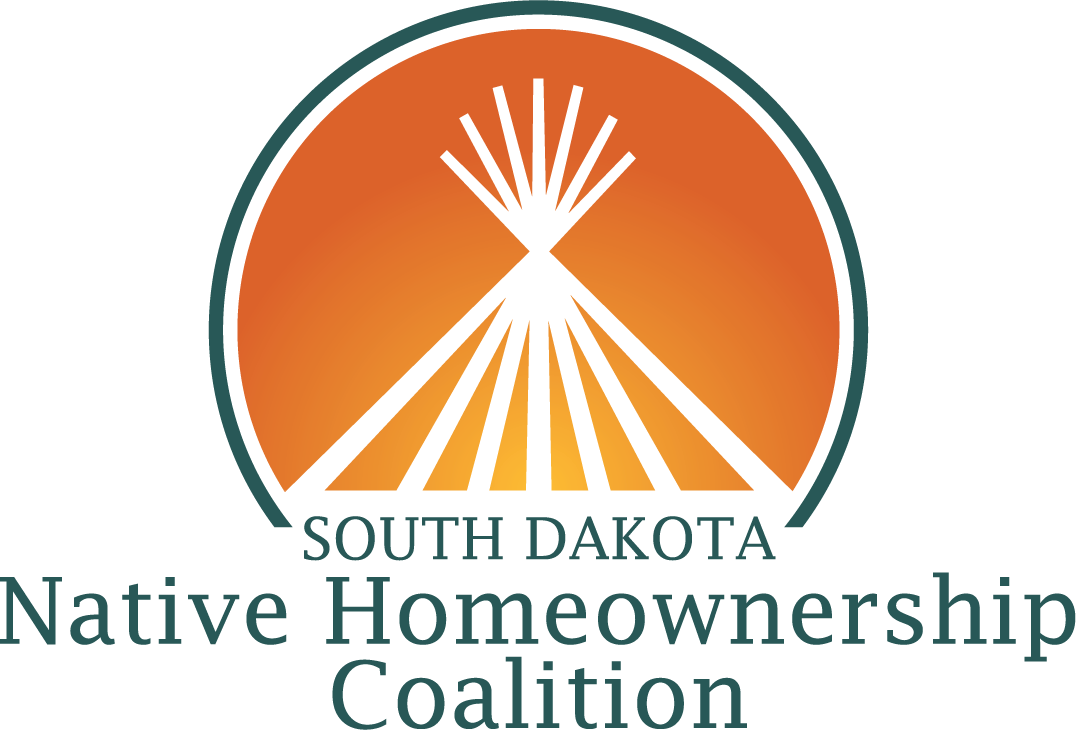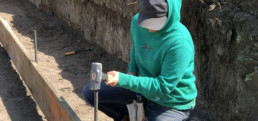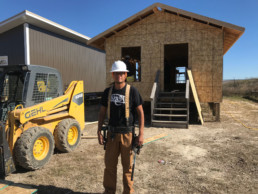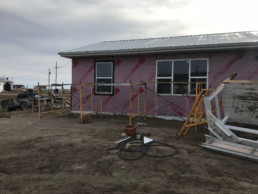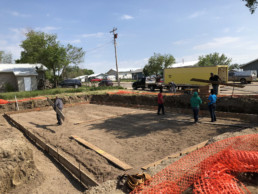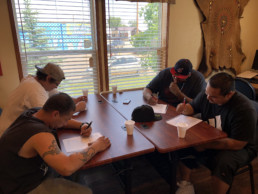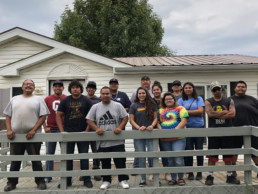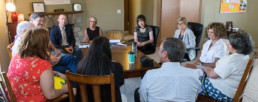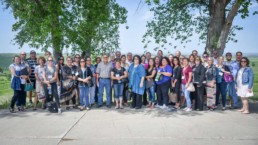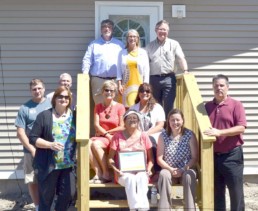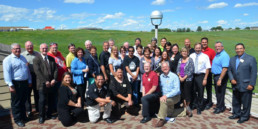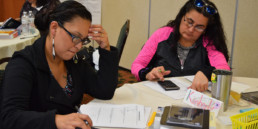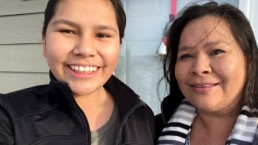Welcome Elaine Kennedy!
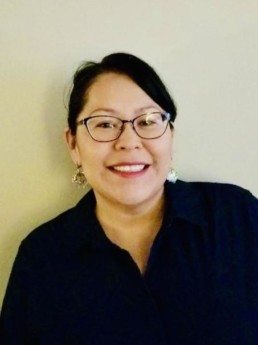
We are pleased to announce that we have hired a part-time Program Coordinator. Join us in welcoming Elaine Kennedy!
Elaine has a strong background in the Native American community development field, and some of you may have already met her while she was employed with Hunkpati Investments. Elaine will be supporting the Coalition with membership, data collection, and events, so you might be hearing from her soon.
A little more about Elaine…
Elaine Kennedy began working in the Native American community and economic development field in 2012 with Hunkpati Investments, a Native community development financial institution (CDFI) that served the Crow Creek Reservation in South Dakota. During her time with Hunkpati she served in several different capacities, including business coach, loan officer, individual development account (IDA) program support, and the volunteer income tax assistance (VITA) site coordinator. Elaine holds a Bachelor of Arts degree in Political Science, a Bachelor of Science degree in Business Administration, and an Associate of Science degree in Business Administration. In addition, she has obtained several certifications in various training programs and curricula, including Indianpreneurship, Workin’ with Tradition, SBA 8(a) Business Development, Building Native Communities: Financial Skills for Families, Pathways Home, and NeighborWorks Financial Coaching.
Construction Internship Program Prepares Tribal Members for Employment Opportunities
After piloting our Construction Internship Program in the Summer of 2017 on the Cheyenne River and Pine Ridge Reservations, the South Dakota Native Homeownership Coalition continued to work with partner organizations in these tribal communities to build on the successful pilot and solidify and strengthen the program during the Summer of 2018.
During our second year, the Coalition worked with more contractors and interns, and a significantly higher percentage of interns completed the program. In 2017, 23 students started the program, with 11 students completing (48%). In 2018, 33 students began the program, with 26 students completing (78%). The 2018 program outcomes were compiled into a report that also includes intern success stories.
In planning for the future, the Coalition plans to focus on the following:
Continue to offer internship on Cheyenne River and Pine Ridge.
The Coalition has developed strong partnerships on Cheyenne River and Pine Ridge, with a core of participating contractors in each community. Looking to the future, the Coalitions plans to continue to offer the internship in these communities.
Expand to additional tribal communities in South Dakota.
A number of additional tribes have expressed interest in the internship, and the Coalition plans to reach out to potential sites and identify new sites by early 2019.
Pilot an administrative/financial management internship.
This internship could build the capacity of contractors, while providing valuable experience for business and financial management students.
Coalition Celebrates USDA 502 Relending Pilot
The US Department of Agriculture’s Assistant to the Secretary for Rural Development, Anne Hazlett visited the Pine Ridge Reservation to meet with Four Bands Community Fund, Mazaska Owecaso Otipi Financial, and other regional partners to discuss the launch of a pilot program to increase homeownership opportunities on tribal lands. Through the 502 Relending Pilot, USDA Rural Development is partnering with Four Bands and Mazaska, both Native community development financial institutions and active Coalition members, to deploy a total of $2,000,000 to eligible Native American homebuyers located in tribal communities of South Dakota and North Dakota. According to USDA, the CDFIs’ deep ties in local communities will help them to reach homebuyers more effectively than other lenders.
The Coalition is excited to see this new development and has been actively advocating for this model as a solution to increase access to USDA’s home loan programs for Native American families. Our efforts, led by our Policy Committee Co-chairpersons, JC Crawford and Sharon Vogel, have included engaging partners and policy makers in various meetings and briefings over the past four-plus years. By creating alliances and identifying champions, we continued to raise awareness of challenges and opportunities related to homeownership and Native American communities.
We’d like to express our gratitude especially to U.S. Senator John Thune (R-SD), as well as U.S. Senator Mike Rounds (R-SD) and U.S. Representative Kristi Noem (R-SD). The South Dakota delegation requested that USDA implement the pilot and recognized that while the 502 Direct Loan program is highly utilized, only 23 of the 7,187 loans made through the program in fiscal year 2017 went to Native American families on tribal lands. We’d also like to recognize U.S. Senators John Hoeven (D-ND) and Heidi Heitkamp (D-ND) who were instrumental in launching the pilot.
The Coalition will continue working with these legislators and USDA Rural Development as the pilot experiences great success. We anticipate that the 502 Relending Program will expand throughout Indian Country and hope it will be a model for creating greater access to other federal mortgage programs on tribal lands.
Thanks to the US Department of Agriculture for contributing photos of Ms. Hazlett’s visit!
Yankton Sioux Tribe Hosts Coalition’s 5th Annual Tour & Convening
On June 6, 2018, over 50 of our members joined with more than 25 members of the Yankton Sioux Tribe for the Coalition’s 5th Annual Homeownership Tour & Convening. Hosted by the Business and Claims Committee of the Yankton Sioux Tribe, the day opened with a Veterans flag presentation and drum group, and welcome remarks by Tribal Chairman Robert Flying Hawk as well as other members of the Committee.
The convening provided the opportunity to learn about:
- The Tribe’s plans for homeownership
- Preview the Coalition’s new video series showing that “Native Homeownership is Possible”
- Share updates and accomplishments
For many Coalition members, the tour of the Reservation was the highlight of the day. During the tour, David LeCompte, the BIA Deputy Superintendent, pointed out different sites that had been identified for future homeownership development. Many of these sites already have existing infrastructure, including water, wastewater, and access to roads.
According to Tawney Brunsch, Executive Director of Lakota Funds and a Coalition member,
“I was struck by the opportunity for homeownership with all of the land available.”
As part of the day’s agenda, Coalition members also heard directly from homeowners about their experiences and the benefits of homeownership. Tribal Veterans Service Officer Dennis Rucker shared his experience in qualifying for a Native American Direct Loan from the US Department of Veterans Affairs, while Kenny Cook, the Treasurer of the Yankton Sioux Tribe, shared his experience in accessing a 502 Direct Loan through USDA Rural Development.
During reflections at the conclusion of the day, Coalition members recognized the importance of the Tribe’s support.
According to one Coalition member,
“The support we have seen from the Tribe is outstanding. Thank you to Tribal Council for promoting homeownership.”
Green Living Practices
The day following the Tour & Convening, several homeownership practitioners gathered for a training session, “Healthy Homes, Healthy Communities.” Focusing on eco-friendly living practices, the training was born out of recognition of the importance of incorporating healthy living practices into post-purchase counseling. It also took into account how green practices can reduce utilities and maintenance costs associated with homeownership, which is a top priority for low-income communities. Training participants were immersed in lessons on using traditional plants, incorporating efficiency into daily habits, and utilizing nontoxic products for maintenance.
Ana Catches, Homeownership and Housing Initiative Coordinator at Thunder Valley Community Development Corporation, attended the training and said this,
“I was able to learn about traditional plants – how they are used for different remedies for homes and families and for clean air quality in homes. I learned about behavior on how to be a smart homeowner and consumer when making purchases on building products and cleaning supplies, and when building a new house to avoid products with high volumes of VOC.”
Upon completing the training, attendees all agreed that practicing sustainable and green living to create a healthy home environment was well worth the investment as it reduces long-term expenses for homeowners and their communities.
Coalition Partners Join Forces to Make Homeownership Dream a Reality
In early June, Sherry Morgan, an enrolled member of the Crow Creek Sioux Tribe, realized her dream of homeownership with the help and support from several of our Coalition members. She now owns a home located on her parents’ leased land where she lived as a young girl.
In recognizing her great accomplishment, a celebratory event was held at Sherry’s home on June 5, 2018, and attended by several partner organizations, family, and community members. During the event, a Crow Creek elder blessed Sherry’s home, and an honor song was performed by the local drum group Bad Nation. USDA Rural Development Director, Julie Gross, presented Sherry with a certificate, and a meal was shared by all who attended.
During the event, Sherry said,
“The feelings are overwhelming for me as a first-time homeowner. Having this home built on the previous site of where my mom and dad lived makes it bittersweet.”
The innovative way in which Coalition members worked together created a path to homeownership for Sherry. This project is USDA Rural Development’s first 502 New Construction Direct Loan with the South Dakota Housing Development Authority’s Governor’s House Program on the Crow Creek Indian Reservation. USDA Rural Development leveraged the 502 Loan with Federal Home Loan Bank’s Native American Homeownership Initiative (NAHI) program through Dacotah Bank, as well as the Crow Creek Housing Authority to assist Sherry with the purchase of the Governor’s House. She also received funds through the Homes are Possible, Inc. (HAPI) grant program for closing costs.
Although Sherry’s homeownership journey was nearly two years, she was driven and committed through the entire process. She hopes that by sharing her story, it will inspire others to jump in with both feet to obtain homeownership.
Coalition Launches “Native Homeownership is Possible” Campaign
We are pleased to announce that we have launched our “Native Homeownership is Possible” campaign through a new website at www.nativehomeownership.com. The website includes a series of short videos designed to:
- Raise awareness of the concept of homeownership in reservation communities.
- Implore that homeownership is possible for Native Americans.
- Inspire and encourage Native American individuals and families to start on the path to homeownership.
In addition, the website features contacts listed by reservation and off-reservation areas that people can access to start on their path to homeownership.
We encourage all of our stakeholders to share these inspiring videos to help spread the message that “Native Homeownership is Possible.”
Coalition Members Head to Washington to Advocate for Native Homeownership
Earlier this month, representatives of the Coalition’s Policy Committee traveled to Washington, DC to advocate for policies to promote Native homeownership in conjunction with the National American Indian Housing Council (NAIHC) Legislative Conference. While in DC, the delegation held meetings with representatives from US Department of Housing and Urban Development, US Department of Agriculture, and US Department of Veterans Affairs (VA). The delegation discussed the proposed 502 relending demonstration (where Native CDFIs would relend 502 funds to qualified borrowers) as well the HUD 184 guaranteed loan product and strategies to increase the number of Native American Direct Loans (NADL) originated by the VA. The delegation also meet with the North Dakota and South Dakota Senators, and Senate Committee on Indian Affairs staff.
Featured in image: Members of the SD Native Homeownership Coalition met with Senator John Thune (R-SD) to discussion Native homeownership. From left to right, Mark Witt, Rosebud Tribal Veteran Service Officer (TVSO); Robert Dunsmore, Cheyenne River Sioux Tribe TVSO; Darrel Hernandez, Oglala Sioux Tribe TVSO; Senator John Thune; JC Crawford, Executive Director, Sisseton Wahpeton Housing Authority; and Joanna Donohoe, Co-Facilitator, SDNHOC.
Coming Soon: Membership Dues
Moving Towards Sustainability
Our Coalition is Launching Membership Dues!
Over the past three years, our Coalition has been discussing strategies to sustain our operations by diversifying our sources of revenue. To date, we’ve enjoyed terrific support from our funders on the local, state, and national levels.
Last fall at our Coalition planning meeting, we created an ad hoc membership committee to explore these issues more formally. The committee met several times to discuss and develop a membership dues strategy. After approval by the executive committee, the new membership benefits and dues structure is nearly final. We will be rolling out our new membership structure in the coming weeks.
We are excited to enter this new phase of growth of the Coalition. We have heard from many stakeholders how beneficial the Coalition’s activities have been to your operations. We look forward to continuing to collaborate with partners who share our mission to increase homeownership opportunities for South Dakota’s Native people to build strong and healthy communities.
Exciting Homebuyer Education Trainings on the Horizon
Based on the input of Committee members, the Coalition’s Homebuyer Readiness Committee is planning two exciting trainings this spring to support homebuyer practitioners working to teach and support new homebuyers in their communities. We invite you to participate in these classes! Registration information will be coming soon.
Designing and Strengthening Your Homebuyer Education Program
Many of our practitioners have attended financial education and homebuyer instructor trainings and are very familiar with different training curriculums. This training will go a step further – looking at how to design a homebuyer education program, or strengthen an existing program. Discussion will include:
- What should agendas cover?
- What activities can should be included?
- How should training modules be structured?
Through this training, participants will have an opportunity to:
- Engage in hands-on activities to expand and practice their facilitation skills
- Learn and test new interactive training activities
- Create participants’ and trainers’ agendas
- Develop pre- and post- training checklists
- Learn new concepts related to adult education methodology
The training will provide valuable opportunities for peer sharing and discussions, and time to for participants to enhance and strengthen their new and their existing financial and homebuyer education programs.
Creating a Healthy Home
Homeownership means more than budgets and monthly payments. Homebuyer educators can also share important information about home maintenance and creating a healthy home environment. In this class, we will look at practical energy-saving tips, how to make non-toxic, healthy cleaning products with readily-available materials, and how healthy homes contribute to healthy communities. We will also spend time looking at local, native plants and their uses.
Family Celebrates Homeownership this Holiday Season
During the Coalition’s annual site visit this past summer, we learned about the Eagle Nest Housing Development on the Pine Ridge Reservation and how some of our stakeholders were creating homeownership opportunities there. We are pleased to share this story about the first family in the development that has transitioned from renting to homeownership.
This holiday season, Cynthia Plenty Bull and her daughter will be celebrating in the same house they have lived in for the past six years. But this year, they will call the home their own. Cynthia is the first tenant in the 30-unit Eagle Nest Housing Development, originally built in 1997 as low-income rental housing, to make the move to homeownership.
For Cynthia, owning her own home means stability. This is especially critical on the Pine Ridge Reservation, an area with an extreme housing shortage where it is estimated that an additional 4,000 homes are needed to provide adequate housing for residents.
“When you are a homeowner, you don’t have to wonder when it will end or if your lease is going to increase and you won’t be able to afford it anymore,” Cynthia says.
When it was constructed, Eagle Nest Housing Development made history as the first Native American low-income housing tax credit development in America, and since then has provided families with affordable housing. The project was designed as a rent-to-own development, where families would have the option to purchase their homes. As the tax credit agreements have reached maturity, Lakota Funds, who owns the development and also an active Coalition member, is reaching out to current tenants and supporting those interested in transitioning from renting to homeownership.
“Although Lakota Funds has invested a lot into Eagle Nest over the last 19 years, our goal was never to turn a profit. It has always been about creating homeownership opportunities, and our board approved a sale price of the homes to make it affordable for the families in the area,” says Tawney Brunsch, the Executive Director of Lakota Funds.
Cynthia began her homeownership journey this summer by contacting Lakota Funds. Lakota Funds then referred Cynthia to Mazaska Owecaso Otipi Financial, a nonprofit loan fund that provides home loan products and also a Coalition member.
Cynthia comments, “They [Mazaska] would tell me step-by-step what to do. We sat down and they talked to us through the whole process. It wasn’t a scary thing.”
Working between the two partner organizations and her bank over the next five months, Cynthia was connected to all of the resources and capital she needed to reach her homeownership goals. Mazaska and Lakota Funds helped her with financial projections and budgeting to ensure the home purchase would be affordable. She worked with her bank to consolidate debt and lower monthly credit card payments. Cynthia also completed Mazaska’s homebuyer readiness course so she would know what to expect as a homeowner.
The nonprofits helped her identify a local contractor to plan out and estimate several renovations that she would roll into her mortgage loan. Mazaska was also instrumental in helping her access all of the subsidies she qualified for to offset down payment and closing costs, and make the home purchase more affordable. In addition, Mazaska provided the mortgage for Cynthia’s home purchase.
Cynthia closed her loan in October with zero down payment and closing costs, and her monthly payment on her 20-year mortgage is about the same as her rent payments were. Overall, she couldn’t have asked for a smoother transition from renting to owning. Cynthia now owns a 3-bedroom, 2-bathroom home with a new roof and windows, remodeled bathrooms, new flooring and paint, and many more upgrades.
She says that what she likes best about her new home is, “Everything is brand new to me, and everything is the way I like I it.”
Cynthia explains that her daughter, Tia, was instrumental in the renovations. They chose all of the materials together, and Tia provided input and some great ideas throughout the process.
“It was a really good experience for Tia, because when she grows up and wants to purchase another house she will know the steps,” says Cynthia.
In the meantime, Lakota Funds and Mazaska are helping more Eagle Nest families through the same home buying process. They anticipate that one more home loan will close by the end of the year and more will close in early 2018.
“It’s really exciting to see the momentum that Cynthia’s home purchase is creating. Now more families are inspired to go for homeownership,” says Tawney.
